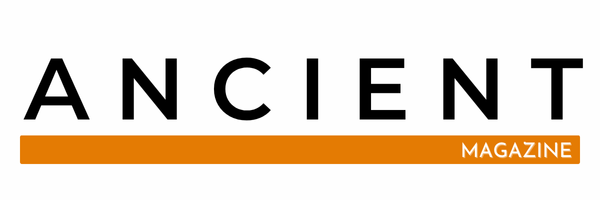Introduction: Exploring the Intersection of Anime Fandom and Digital Platforms

In the expansive digital landscape of anime culture, platforms that host and distribute manga—particularly those with explicit content—have grown in both popularity and controversy. Among them, NHentai.net has emerged as a prominent player, drawing attention for its extensive repository of adult-themed doujinshi and manga. With its intuitive interface and vast library, NHentai.net has cultivated a substantial user base, becoming a central hub for fans seeking hentai content. However, its influence extends far beyond simple content consumption, raising broader discussions around ethics, community dynamics, and the future of online fandom.
The Emergence of Hentai in Digital Anime Subcultures
Hentai, a genre once relegated to underground circles, has witnessed a steady rise in visibility and consumption. This evolution is closely tied to the proliferation of digital platforms, which have dismantled geographic and social barriers, enabling global access to content that was once difficult to obtain legally or culturally taboo. NHentai.net has capitalized on this accessibility, offering users an easy-to-navigate experience with searchable tags, user ratings, and comprehensive categorization.
The internet has proven fertile ground for forming niche communities. Online forums, Discord servers, and subreddit groups dedicated to hentai have facilitated the formation of microcultures that engage in deep discussions on genre tropes, storytelling, and visual aesthetics. These digital spaces have shifted the perception of hentai from mere titillation to a subcultural art form worthy of critique and appreciation.
Simultaneously, the widespread availability of hentai has contributed to the normalization of sexual content in anime culture. As mainstream platforms like Crunchyroll and Netflix introduce edgier series that flirt with explicit themes, the divide between “mainstream” and “niche” has started to blur. NHentai.net, in many ways, stands as both a product and a driver of this shift.
Ethical Concerns and Controversies
Despite its popularity, NHentai.net has not escaped scrutiny. The platform has repeatedly faced criticism over the presence of content depicting underage characters, often in contexts that critics deem morally and legally problematic. While disclaimers and tags are often used to delineate fictional content from reality, many believe these measures are insufficient in mitigating the harm or potential legal implications associated with such material.
Intellectual property violations present another serious issue. Numerous artists and doujinshi creators have discovered their work uploaded to NHentai.net without permission, stripping them of both revenue and creative control. These practices not only infringe on creators’ rights but also foster an ecosystem that disincentivizes artistic production. According to a 2023 survey by Pixiv, over 40% of independent hentai artists reported unauthorized distribution as a primary concern.
Advocates of NHentai argue that it provides visibility to artists operating outside traditional publishing avenues and preserves rare or out-of-print works. However, this argument often clashes with ongoing calls for ethical content curation and support for original creators.
Cultural Impact on the Broader Anime Community
NHentai.net’s influence reaches beyond its explicit archives—it shapes how anime fandom navigates issues of sexuality, freedom of expression, and community responsibility. The site has become a conversation starter, prompting debates about what constitutes art versus exploitation and how fan-driven platforms should balance open access with moderation.
While some critics worry that the prevalence of hentai may reinforce negative stereotypes about anime fans—particularly perceptions of social isolation or deviance—others argue that these platforms facilitate valuable conversations around sexuality and consent. The truth likely lies in the nuance: NHentai.net reflects a segment of the anime community that is deeply engaged with themes mainstream discourse often avoids, making it a vital—if controversial—part of the cultural tapestry.
Moreover, fan translation groups and amateur artists use platforms like NHentai to reach global audiences, introducing localized or obscure works to new readerships. This contributes to a more diverse and inclusive content ecosystem, albeit one that still lacks robust regulatory frameworks.
Viable Alternatives and Evolving Ecosystems
For users seeking either similar content or a more moderated environment, several alternatives to NHentai.net exist. Hentai Haven, for example, offers curated selections of animated works with higher editorial oversight. E-Hentai and ExHentai provide similarly vast databases but include extensive metadata tools for more refined searches.
Platforms like MangaDex present a more generalist approach, hosting a wide variety of manga—including non-explicit content—with a focus on community-driven translations and ethical uploads. Doujinshi.org, on the other hand, prioritizes original fan-made works and often provides links for direct support of artists.
These platforms reflect a growing awareness among users about ethical consumption. As digital literacy increases, more readers are choosing services that prioritize artist recognition, safe content labeling, and community governance.
Looking Ahead: The Future of Anime Fandom in the Digital Age
As the landscape of anime fandom continues to evolve, platforms like NHentai.net will remain influential—but not without challenges. The next phase of online anime communities will likely be defined by how they respond to mounting concerns over content regulation, creator rights, and user responsibility.
The rise of blockchain-based digital rights management, for instance, could give artists more control over their work, while AI moderation tools may improve the filtering of problematic content. Meanwhile, the mainstreaming of anime—now a multi-billion-dollar global industry—will necessitate closer scrutiny of how adult content intersects with broader media consumption patterns.
Ultimately, the future lies in cultivating platforms that not only cater to diverse interests but also foster safe, respectful, and inclusive digital environments. As users become more conscious of the ethical dimensions of their engagement, the community’s collective standards will shift accordingly.
Conclusion: Embracing Complexity in Anime Culture
NHentai.net represents more than just a repository of adult manga—it encapsulates the complex interplay between fandom, art, technology, and ethics. Its continued relevance underscores a need for ongoing dialogue about what it means to be a responsible participant in digital subcultures. By confronting these questions head-on, online anime communities can evolve into more mature, reflective spaces that honor both creative freedom and collective accountability.






